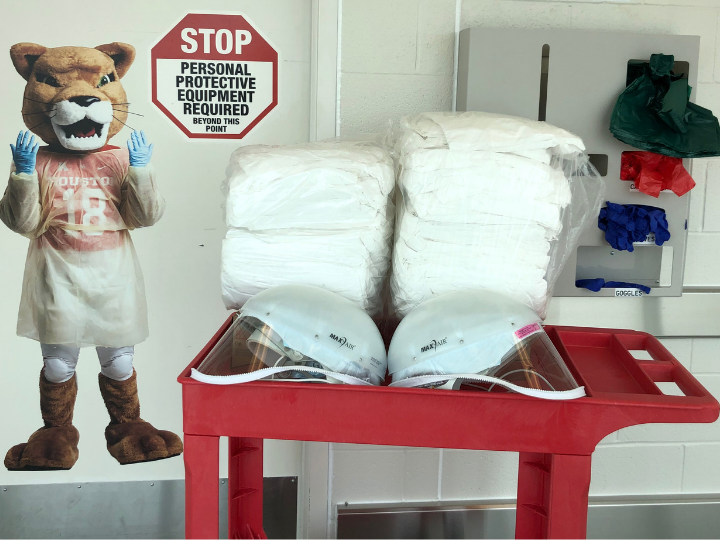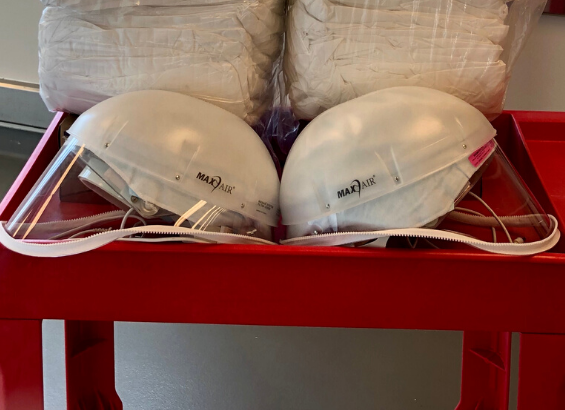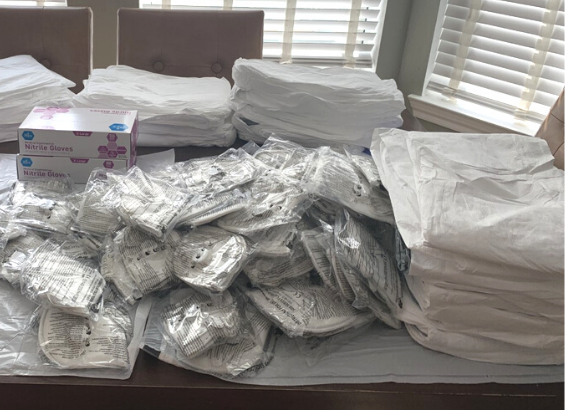


Health care facilities across the country are preparing for a surge of COVID-19 patients in the coming weeks with a growing concern over the safety of the workers on the front lines of the fight. A national shortage of personal protective equipment (PPE) – gloves, masks and protective coveralls – has prompted hospital systems to solicit donations from the oil and gas, chemical and industrial painting industries among others, including higher education.
When the Texas Medical Center asked for help from anyone with access to these much-needed supplies, University of Houston researchers answered the call. Dr. David Brammer, executive director and chief veterinarian of Animal Care Operations, packaged and sent 70 full-body coveralls, which offer superior protection against a variety of hazards including body fluids. COVID-19 is spread through respiratory droplets produced when an infected person coughs or sneezes, making that high-density polyethylenebuffer between hospital staff and patients so critical. In addition, Brammer’s department donated two powered air-purifying respirators, or PAPRs –helmet-like devicesused to safeguard against contaminated air.
“I worked in the pharmaceutical industry for many years and our motto was the patient is waiting, meaning the patient’s well-being is everything. Helping these heroic health care workers and patients by sacrificing our gear for the betterment of their health is what the University of Houston is all about,” said Brammer.
There are plans to donate even more PPE to Texas Medical Center institutions as weekly shipments arrive. In the meantime, the staff in Brammer’s department – working to promote and support breakthrough biomedical research at the University of Houston –volunteered to modified processes to conserve its current supply of protective coveralls. “We want to be ready if more help is needed. It’s more important now than ever before for everyone to unite to help the most vulnerable during this crisis,” he added.
Others at UH have responded to the calls for help, as well. Seamus Curran, physics professor and founder of Integricote, offered personal protective equipment from his lab to the city of Houston. Integricote is a nanotech company based at the University’s Technology Bridge, which produces coatings and sealers for fabrics, glass, tarps, wood and masonry.
The body suits, N95 masks, gloves and safety glasses “are things we would typically have in the lab,” he said. “You always wear a mask. You always wear gloves. If you’re worried about something splashing on you, you wear a body suit.”
After a friend who works at local hospitals mentioned the critical need for safety equipment, Curran contacted the mayor’s office with an offer: 27 body suits, 73 N95 masks and 200 gloves. He quickly got a response from the Houston Health Foundation, accepting the offer.
As hospitals brace for the battle, they’re working to create capacity by stopping elective and other procedures, all to focus on securing the necessary supplies and equipment to give their staff the best chance to win … with just a little extra help from some caring Coogs.